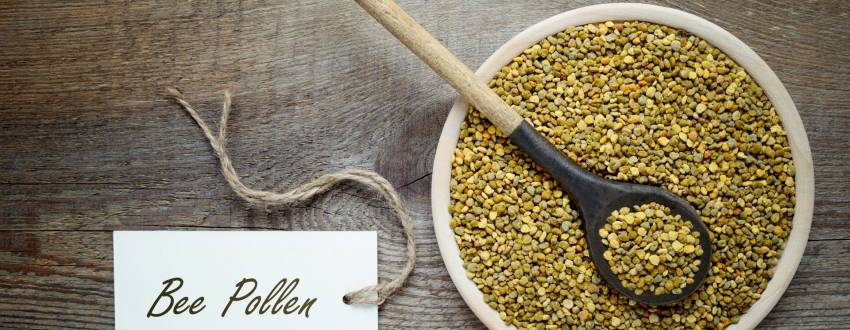By: Bluma Gordon, Lubicom Marketing Staff
When a new miracle product makes headlines, it’s hard to know what’s worth trying and what’s just a trumped-up version of some placebo pill. If you’ve ever wondered about bee pollen, here are the answers to some of your questions.
1. What’s Bee Pollen, Anyway?

Bee pollen, otherwise known as bee bread, consists mostly of pollen that was collected and fermented by bees, with a small percentage of honey and bee saliva. Bee pollen is a dietary supplement sold in capsule, powder, and pellet form. You’ll probably see it most often in the form of little gold or multi-colored pellets.
2. Why All the Craze about Bee Pollen? What’s it Good For?
Bee pollen is praised for its numerous health benefits. Here are some, to name a few.
A. It’s got an impressive nutritional profile
Looking for ways to up the nutritional content of your on-the-go diet? You might want to consider bee pollen. Dubbed superfood by some, the small pellets contain up to 40% protein, amino acids, vitamin C, iron, copper magnesium, zinc, minerals, antioxidants, and natural disease-fighting properties. Studies conducted on animals that were fed bee pollen showed improved muscle mass, healthier metabolism, better reproductive health, and a longer life span.
B. It fights seasonal allergies

Bee bread can help fight the sniffles and inflammation associated with seasonal allergies, too. Experts say that the little nuggets can actually work as a form of immunotherapy—kind of like an allergy shot—to desensitize the body to local pollen. That said, if you want to try bee pollen to combat allergies, buy pollen that was produced locally and contains traces of allergens that your body recognizes.
Word of caution: If you’re severely allergic to pollen, or even mildly allergic to honey or bee stings, then stay away from the pellets; they’re probably not for you.

C. It boosts the immune system
The pellets contain natural antioxidants (the stuff that helps ward off toxins in the body) and properties that help fight fungal, viral, and bacterial infections. Just another reason to go for it if you suffer from the winter ills.
D. It increases blood flow
Bee pollen is a recommended food additive for those who suffer from blood circulation issues or are at an increased risk of heart disease or stroke. Plus, bee bread also increases blood flow to the central nervous system. That means a less stressful, more relaxing winter for you.
E. It’s got a host of other benefits
Not convinced yet? Bee pollen touts other benefits as well. It is said to aid digestion, improve fertility, reduce inflammation, treat symptoms of menopause, improve liver function, and heal skin wounds.
Fun fact: Bee pollen has treated skin burns and wounds so successfully, it’s actually sold as a wound paste, too.
3. How Do I Add It to My Diet?

While bee pollen has a slightly sweet taste, since it’s mildly bitter, you’ll probably find it more palatable when combined with other foods. The recommended daily dosage is ⅛ to ¼ teaspoons a day—not a whole lot in relation to its health benefits!
Here are some easy ways to incorporate bee pollen into your diet:
- Add the pellets to your morning yogurt, cereal, or oatmeal
- Make morning smoothies? Toss in bee pollen capsules or powder
- Top homemade cooling granola with bee pollen pellets or powder
- Add bee pollen powder to honey-mustard dressing recipes
If you can’t make peace with the taste but still want to benefit from bee pollen, you can also buy it in capsule form. The additive is sold in your local health food store and can also be found in many brick-and-mortar and online stores.

4. Anything Else I Should Know Before Giving It a Shot?
Bee pollen is a great dietary supplement, but should not be consumed in place of medication, and some may be sensitive or even allergic to it.
Be sure to follow relevant directions on product labels and consult your pharmacist or physician before using.
To “Bee,” Or Not To “Bee”?
So, what’s the final verdict? Is bee bread a miracle cure-all drug or just another passing diet craze? While it’s no miracle pill, bee bread certainly has impressive health benefits. But it’s not for everyone, and we’re yet to see if it’ll outlast the passing trends. Did bee pollen work for you? Chime in and comment below!






Reviews